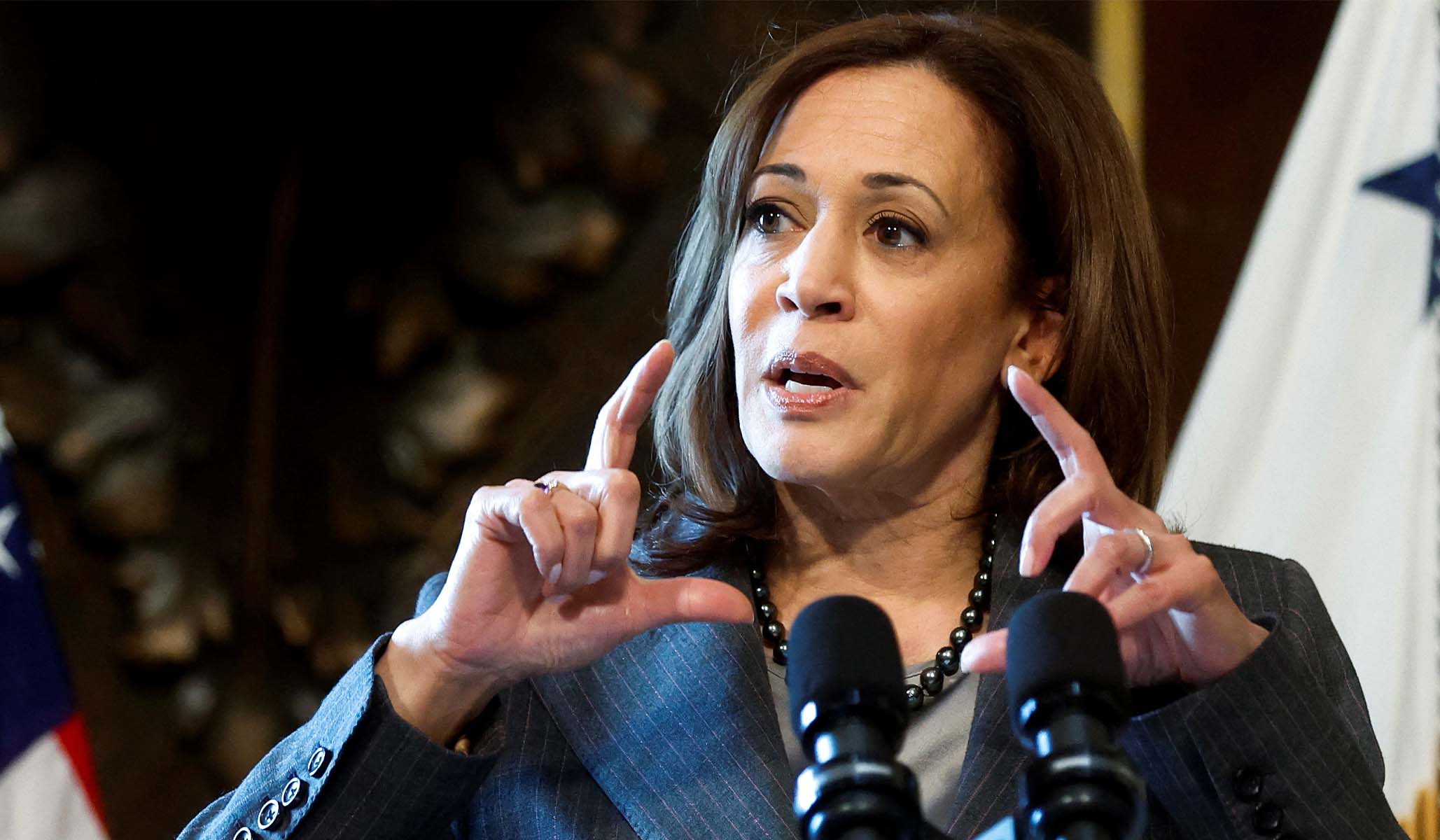


America lacks a priestly caste devoted to divining the unfathomable depths of implication embedded in Vice President Kamala Harris’s meandering and oftentimes incomprehensible public statements. But we sure could use one.
When speaking extemporaneously, Harris follows a pattern. She is asked a straightforward question, to which she responds lucidly for a sentence or two. But it is never long before she departs from the first few bullet points she can recall from the briefing materials and subsequently begins filling in the gaps in her knowledge with broad, philosophical digressions. At this point, she rockets off into psychedelic orbit. Her audiences are left to watch through gritted teeth as she erects elaborate cathedrals of nonsense in an effort to land on something resembling profundity.
This habit is usually most apparent when Harris speaks on stage, but sometimes we see it in written comments.
Take, for example, the vice president’s latest statement:
Since this assertion is not accompanied by any literature that might help us explain what she’s talking about, we’re left to perform a Talmudic analysis of these comments.
Is the “unacceptable” “inequity” associated with bathroom access on domestic flights aboard the most common domestic airplane, the Boeing 737-800? If so, she might be referring to a rule proposed last year by the Department of Transportation that would, if adopted, mandate larger lavatories on new aircraft beginning in 2041 for planes with 125 or more passengers. But if that’s what she meant, why would she forecast action “soon” to address this injustice?
Indeed, the vice president said the “majority of domestic flights,” which describes short-haul flights that cover between 300 and 1,200 miles and are in the air for around 30 minutes to three hours. The Boeing 737 and Airbus A320 are popular aircraft for these jobs, but so, too, are smaller jets and turboprop aircraft that are designed to carry far fewer than 125 passengers. Some of these planes carry only a maximum of 19 passengers, and those aircraft do not have any bathroom facilities at all. If Harris has her sights set on these airplanes, perhaps she is previewing an attempt to impose the French model of inefficiency on American air travelers.
Axios, rapidly retooling itself into an environmental catastrophism blog, reported glowingly in May on a French governmental effort to scrap short-haul flights between destinations that can be reached by rail. Axios’s Ivana Saric conceded that importing the French approach would be a challenge for the U.S. because, despite having the most extensive rail network on earth, most of it is freight. Moreover, as the International Council on Clean Transportation (whose advocacy informs much of the piece) concedes, “Short train routes are relatively rare because they are uncompetitive with cars.”
But is that really an obstacle for this White House? After all, the administration has, on more than one occasion, pursued policies that were either unworkable or (sometimes admittedly) unconstitutional with the understanding that they can energize their base voters around the hypothetical — or, at least, blame the courts, the Republicans, or even the impassive forces of history for standing in the way of the utopia they envision. Does the vice president’s office believe voters will mobilize around the outrageous existence of cheap and convenient air travel? We can’t rule it out.
The vast penumbra of meaning contained within the vice president’s every ponderous utterance makes it hard to avoid speculating about her intentions. Her latest output is no exception. Her statement signifies absolutely nothing if most of her public comments are any indication. But that doesn’t render Harris’s comments worthless. What the vice president lacks in clarity and substance, she more than makes up for in entertainment value.
